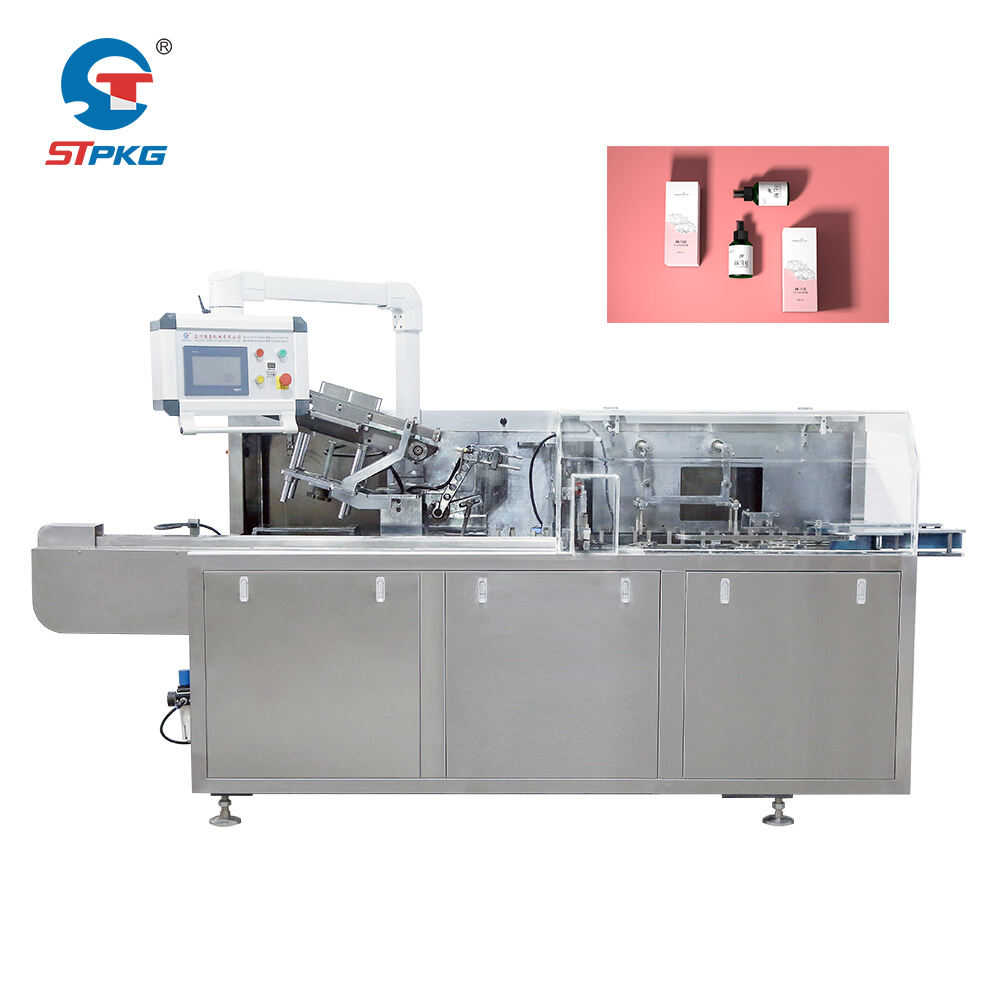Transforming Production Efficiency with Advanced Packaging Automation
The beauty industry's rapid growth has placed unprecedented demands on cosmetic manufacturers to increase their production capacity while maintaining product quality and safety. At the heart of this challenge lies the cosmetic packaging machine, a crucial component that can make or break your operational efficiency. Modern packaging automation not only streamlines the production process but also ensures consistent quality that beauty brands require to maintain their market position.
Today's competitive landscape demands more than just basic packaging solutions. Manufacturers need intelligent, flexible, and high-speed systems that can handle various product formats while minimizing downtime. The right cosmetic packaging machine can revolutionize your production line, offering benefits that extend far beyond mere speed improvements.
Core Components of Modern Packaging Systems
Filling and Dispensing Mechanisms
Advanced cosmetic packaging machine systems incorporate precise filling mechanisms that can handle products of varying viscosities. These systems utilize sophisticated sensors and controls to ensure accurate dispensing volumes, reducing product waste and maintaining consistency. The latest filling technologies can switch between different container sizes and product types with minimal changeover time, significantly improving production flexibility.
Modern dispensing systems also feature clean-in-place (CIP) capabilities, reducing maintenance downtime and ensuring hygiene standards are met without extensive manual cleaning procedures. This automation in cleaning processes alone can save hours of production time weekly.
Container Handling and Positioning Systems
Efficient container management is crucial for maintaining high-speed operations. State-of-the-art cosmetic packaging machines employ advanced conveyor systems with precise positioning controls to ensure smooth container movement throughout the packaging process. These systems can handle multiple container formats simultaneously, from small lipstick tubes to large lotion bottles.
Smart container handling systems also incorporate rejection mechanisms that automatically remove defective containers without stopping the production line. This continuous operation capability significantly enhances overall production efficiency while maintaining quality standards.

Speed Optimization Technologies
Servo-Driven Systems
Modern cosmetic packaging machine designs leverage servo motor technology to achieve precise control and higher speeds. These systems provide smooth acceleration and deceleration profiles, reducing mechanical stress and enabling faster operation without compromising accuracy. Servo-driven systems can adapt their performance parameters in real-time, optimizing speed based on product characteristics and packaging requirements.
The integration of servo technology also allows for quick format changes, with automatic adjustment capabilities that minimize downtime between production runs. This flexibility is especially valuable for manufacturers handling diverse product lines.
Digital Control Integration
Advanced control systems form the backbone of high-speed packaging operations. Modern cosmetic packaging machines feature sophisticated HMI interfaces that provide real-time monitoring and adjustment capabilities. These systems can track production metrics, identify bottlenecks, and suggest optimization strategies to improve line speed.
Digital controls also enable predictive maintenance scheduling, helping prevent unexpected downtime by identifying potential issues before they cause production interruptions. This proactive approach to maintenance significantly improves overall equipment effectiveness (OEE).
Quality Assurance Features
Vision Inspection Systems
High-speed production requires robust quality control measures to maintain product integrity. Modern cosmetic packaging machines incorporate advanced vision systems that can inspect hundreds of containers per minute, checking for proper filling levels, cap placement, label positioning, and overall package integrity. These systems operate at line speed, ensuring quality control doesn't become a bottleneck.
The latest vision technology can also adapt to different package types and colors, making it versatile enough to handle diverse product lines while maintaining consistent inspection standards. This flexibility is essential for cosmetic manufacturers who produce multiple SKUs.
Weight Verification Systems
Precision in product filling is crucial for both regulatory compliance and customer satisfaction. Advanced cosmetic packaging machines include integrated weight verification systems that can check fill accuracy at high speeds. These systems can automatically adjust filling parameters to maintain consistent product volumes, reducing waste and ensuring compliance with packaging regulations.
Modern weight verification technologies can handle various container sizes and product densities, providing accurate measurements without slowing down the production line. This capability is particularly valuable for manufacturers producing both liquid and cream-based products.
Future-Proofing Your Production Line
Industry 4.0 Integration
The future of cosmetic packaging automation lies in smart factory integration. Modern packaging machines come equipped with Industry 4.0 capabilities, allowing them to communicate with other production equipment and management systems. This connectivity enables real-time production monitoring, automated scheduling, and predictive maintenance planning.
Integration with enterprise systems also facilitates better production planning and inventory management, helping manufacturers optimize their operations for maximum efficiency. The data collected through these integrated systems provides valuable insights for continuous improvement initiatives.
Sustainability Features
Environmental considerations are increasingly important in cosmetic packaging. Advanced packaging machines now incorporate features to reduce waste, optimize energy consumption, and handle eco-friendly packaging materials. These systems can adapt to sustainable packaging formats while maintaining high production speeds, helping manufacturers meet both environmental goals and productivity targets.
Modern machines also include energy monitoring and optimization features, helping reduce operational costs while maintaining optimal performance. This focus on sustainability doesn't just benefit the environment – it often leads to significant cost savings through reduced material and energy consumption.
Frequently Asked Questions
What factors should I consider when selecting a cosmetic packaging machine?
When choosing a cosmetic packaging machine, consider your production volume requirements, product variety, container formats, and future scaling needs. Also evaluate the machine's flexibility, maintenance requirements, and integration capabilities with your existing systems. The supplier's technical support and spare parts availability are equally important factors.
How long does it take to implement a new packaging system?
Implementation timeframes typically range from 8 to 16 weeks, depending on the complexity of the system and your specific requirements. This includes installation, testing, operator training, and initial production optimization. Working with experienced suppliers can help ensure smooth implementation and faster time-to-production.
What maintenance requirements should I expect?
Modern cosmetic packaging machines require regular preventive maintenance, typically scheduled weekly or monthly depending on usage. However, advanced systems with predictive maintenance capabilities can help optimize maintenance schedules based on actual machine performance and wear patterns, reducing unexpected downtime and maintenance costs.

